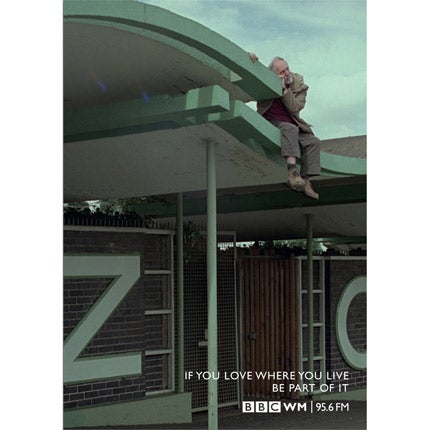Claire Beale On Advertising: Is this why we hate ads on the radio?

Perhaps it was Peter Andre's sore throat that did it. Or perhaps it was just that after 12 months of recessionary gloom, adland was ready for some good news. Whatever the reason, last week's radio awards defied low expectations.
The industry roped in a few of its own celebs (who were clearly cheap, if not absolutely free) to present the awards, with Christian O'Connell the host. And though Andre was too fragile to sing (was that really a cheer from the audience at the news?) he took a turn on the stage. In the end, somewhat surprisingly, radio managed to put on a good show.
No mean feat in the circumstances. If media's having a torrid time (and it is), radio's having a worse one. You know the big picture by now: advertising revenue has collapsed in the recession. But radio is one of the hardest-hit of all commercial media and its fortunes are expected to recover slower than its rival media.
Despite the gloomy backdrop, though, there was plenty to celebrate last week. The winners were worthy. Particularly the work for the Department for Transport by Leo Burnett and Abbott Mead Vickers BBDO, which forced home the brutal realities of dangerous driving.
There was prize money too: £250,000 for Marie Curie Cancer Care, whose ad featuring actor Stephen Mangan talking about how the charity had helped his mum in her final months. And another £250,000 for the DfT, whose "Search" ad was a wonderfully realistic insight into what it's like to be arrested for dangerous driving. Otrivine, the eye-drops brand, was awarded the best new advertiser accolade and handed a cheque for £500,000. But none of it was enough to suggest a renaissance in radio advertising.
First, though, let's be positive. Apparently we Brits love radio. Ninety per cent of us tune in every week. The potential power of radio in the marketing mix is definitely undervalued. In the time-poor 21st century, radio is one of the few mediums that can be enjoyed while we're multi-tasking. Yet it's also a relationship medium. Its listeners feel a real intimacy with their favourite station, local or national, which means radio advertising can be incredibly potent.
But it also means radio advertising can be unspeakably annoying. All of which means radio advertising has to be really good to work. An awful lot isn't really good, though. Much of it is really quite bad. Maybe a lot of radio advertising just seems worse than it really is because it interrupts that special relationship that radio stations and radio DJs have with their audience. But the radio-awards judges found great creative work in depressingly short supply.
The fact that advertising agencies and clients rarely get as excited about making a radio campaign as they do about, say, a TV ad or a ground-breaking piece of digital marketing doesn't help. So you'll often find that radio ads are made by junior creative teams, before they graduate on to sexier briefs. And advertisers might use radio when they're small and budgets are tight, but if their business grows and marketing budgets increase, they'll often shift their focus onto other media. And with other media now so much cheaper, it's easier for radio advertisers to "trade up" to TV and national print media.
So perhaps we shouldn't be surprised that there weren't many creative agencies at last week's awards. And no creative directors. And no creative agency chiefs. Which is a shame and a missed opportunity. Because unless agencies can be persuaded to take the craft of radio advertising more seriously, the quality of the work will continue to be poor and too many radio ads will continue to insult and irritate their listeners.
Best in Show: BBC local radio (Rainey Kelly Campbell Roalfe/Y&R)
Radio again. This time, the BBC. The BBC does radio beautifully, of course. And the BBC does advertising beautifully these days, too. So no surprise that Rainey Kelly Campbell Roalfe/Y&R's new ad campaign for BBC local radio is a wonderfully warm, lyrical homage to the medium. The soundtrack – a languid version of "Unchained Melody" – is just right: evocative and moreish. And the images of people hugging their local landmarks, from pillar boxes and landmarks to statues and train platforms, are tenderly and seductively shot. Feel the love.
Join our commenting forum
Join thought-provoking conversations, follow other Independent readers and see their replies
Comments